
- Share via
Five months ago, USC cited safety as a rationale for banning economics professor John Strauss, who is Jewish, from campus after student activists said they felt threatened when he approached them at a protest and said “Hamas are murderers. ... I hope they all are killed.”
“Our north star is protecting the safety of our community,” a USC spokesperson said at the time.
Now the university is again citing safety concerns for canceling a Muslim valedictorian’s speech at its May commencement ceremony.
More than six months after the Hamas attack on Israel that started a war, campus administrators nationwide are struggling to uphold principles of free expression amid mounting pressure from donors, legislators and activists who claim an ever-expanding amount of speech — or potential speech — subjects students not only to physical danger but also to psychological harm.
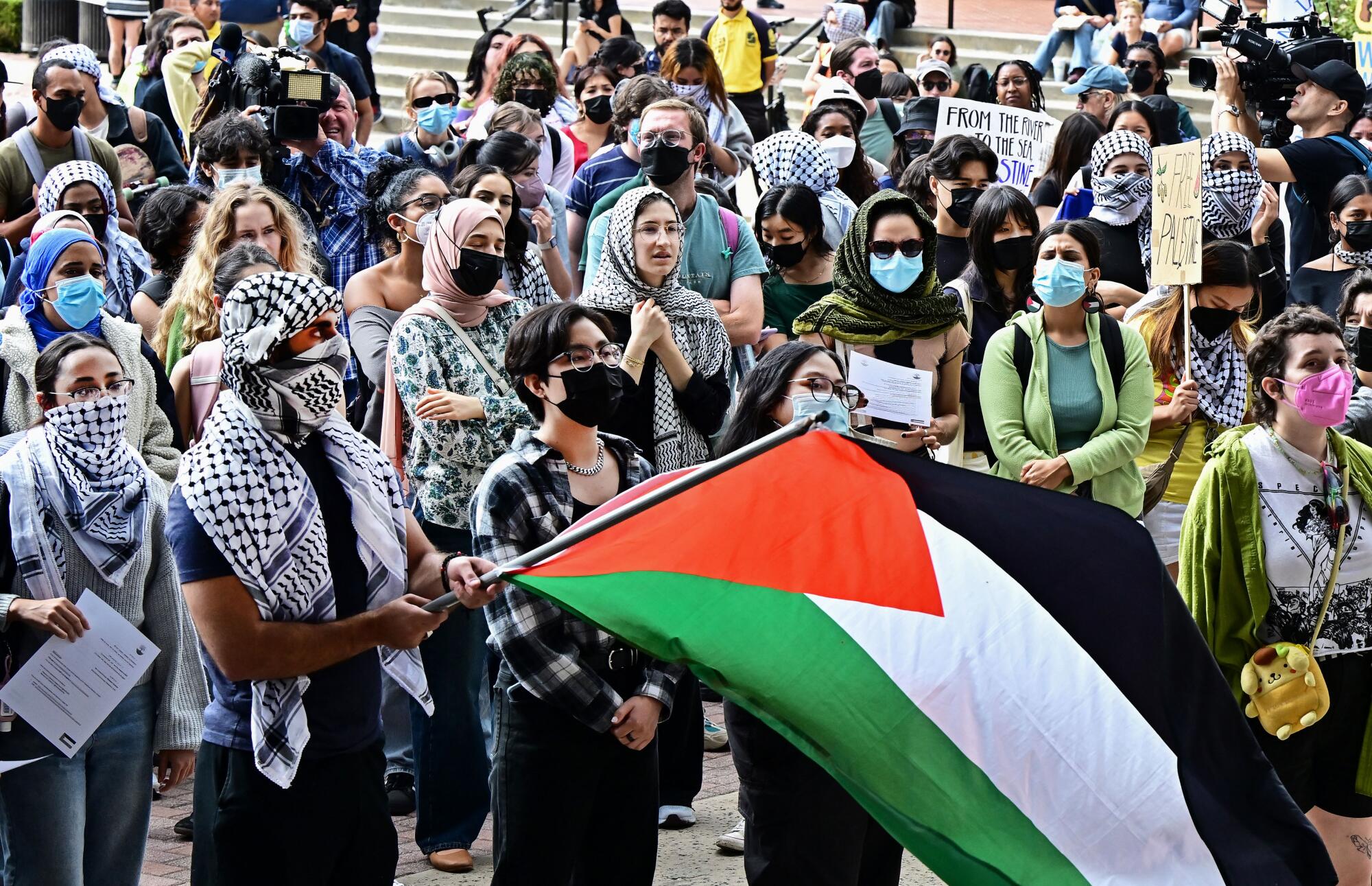
Free speech advocates note that the decision regarding Asna Tabassum, a USC senior who is graduating with a major in biomedical engineering, was not caused by anything she said or planned to say. Instead, the university said, online discussion had taken on an “alarming tenor” as activists objected to her minor — resistance to genocide — and a link to a pro-Palestinian website Tabassum had shared on her Instagram profile.
“This sets a very bad precedent,” said Alex Morey, director of campus rights advocacy with the nonprofit civil rights group Foundation for Individual Rights and Expression. “Moving forward, are they going to cancel every speech that could have anything to do with Israel-Palestine because they’re worried about ‘safety concerns’?”
Free speech experts fear that USC, in canceling its valedictorian’s speech, is paving the way for a censorious commencement season, offering others a playbook on how to silence potentially controversial speakers in the weeks to come.
“A university, except in the most exceptional cases, should not be giving in to threats of violence in order to suppress speakers,” said Keith Whittington, a political scientist at Princeton University and author of “Speak Freely: Why Universities Must Defend Free Speech.”
“It’s a corruption and compromise of the university’s very basic commitments.”
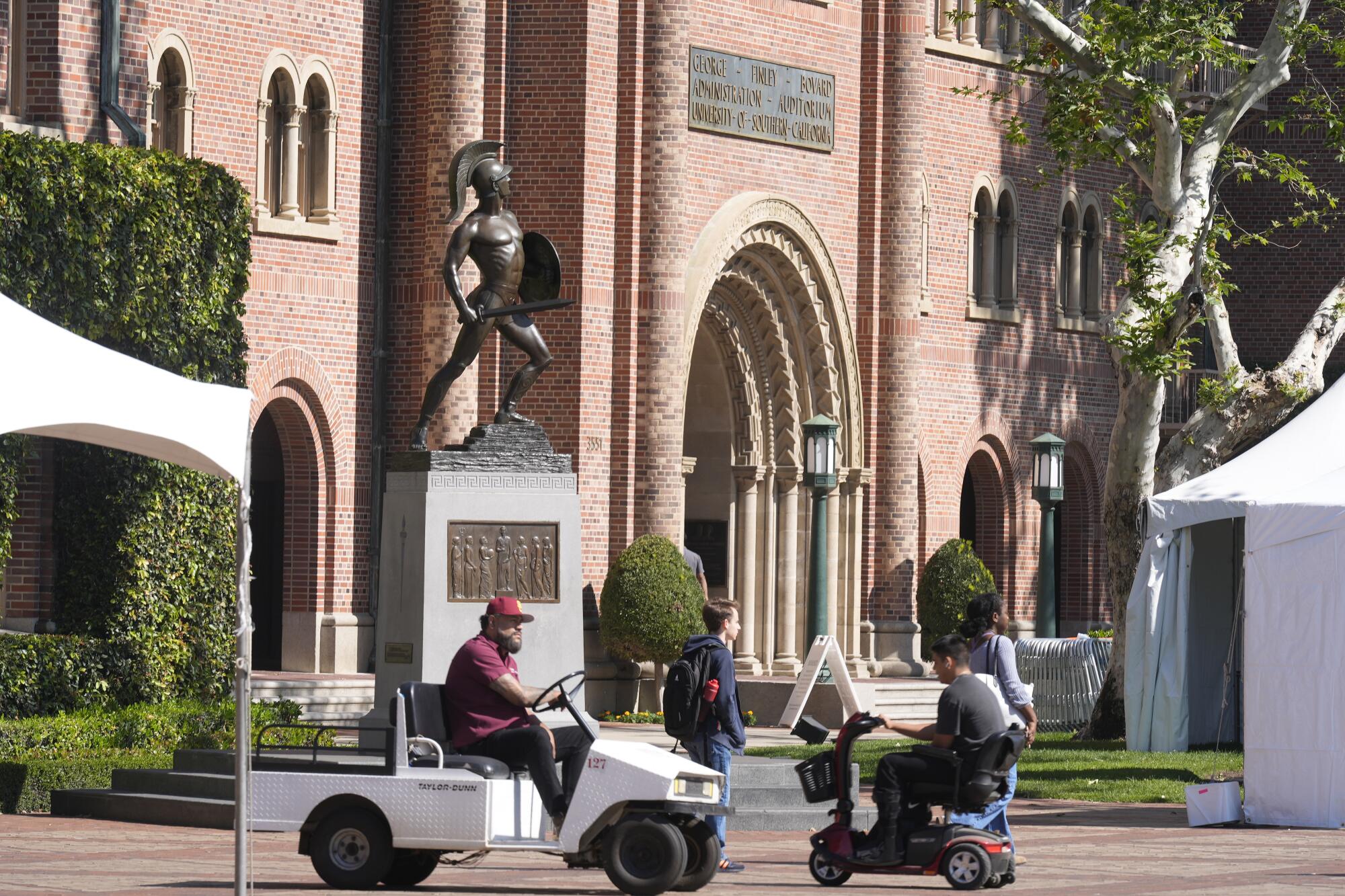
::
The use of safety concerns to shut down campus speech did not start after Oct. 7. But, Morey said, universities have increasingly canceled events as they have seen an uptick in protests of Israel’s actions in the Gaza Strip.
Last month, the University of Nevada, Las Vegas halted a public lecture from a visiting Israeli professor 15 minutes after he started speaking when pro-Palestinian protesters burst into the room.
Asaf Pe’er, an expert on theoretical high-energy astrophysics, was not speaking about the Israeli-Palestinian conflict. His lecture was on black holes.
Rather than stop the disruption, citing the protesters’ 1st Amendment rights, UNLV police escorted Pe’er off campus “to ensure his safety.”
Other cancellations in the name of safety have taken place across the country, from Indiana University shutting down an art exhibit by Palestinian artist Samia Halaby to the University of Vermont canceling an in-person appearance by a pro-Palestinian poet .
Experts who track campus speech say university leaders have predominantly targeted speakers expressing support for the Palestinian cause.
“It’s definitely the pro-Palestinian speech that we are seeing very broadly being subjected to institutional punishments,” Morey said. “That’s not to say that there aren’t cases where pro-Israel or Zionist speakers are being punished.”
Part of the reason pro-Palestinian activists are targeted in greater numbers is that more students have embraced the Palestinian cause in recent years.
Some protests have crossed the line into unprotected expression, Morey said. But there is also growing pressure on university officials from donors and legislators worried about antisemitism to crack down on pro-Palestinian speech.

“It’s a pressure cooker for administrators,” Morey said. “In these cases, we want to make sure that their lodestar are student and faculty rights, rather than who is exerting the most pressure.”
::
When USC announced that Tabassum would be the valedictorian, two groups — Trojans for Israel, a campus student group, and EndJewHatred, a national movement dedicated to fighting antisemitism — spoke publicly against her.
In an Instagram post, Trojans for Israel said Tabassum “propagates antisemitic and anti-Zionist rhetoric,” but did not cite anything she had written or said publicly. Instead, the post points to a link she had shared on her social media page that leads to a website describing Zionism as a “racist settler-colonial ideology.”
In an interview with The Times, Tabassum said she had not spoken to administrators about her speech, in which she said she had planned to convey hope and emphasize that “we must continue to use our education as a privilege to inform ourselves and ultimately make a change in the world.”
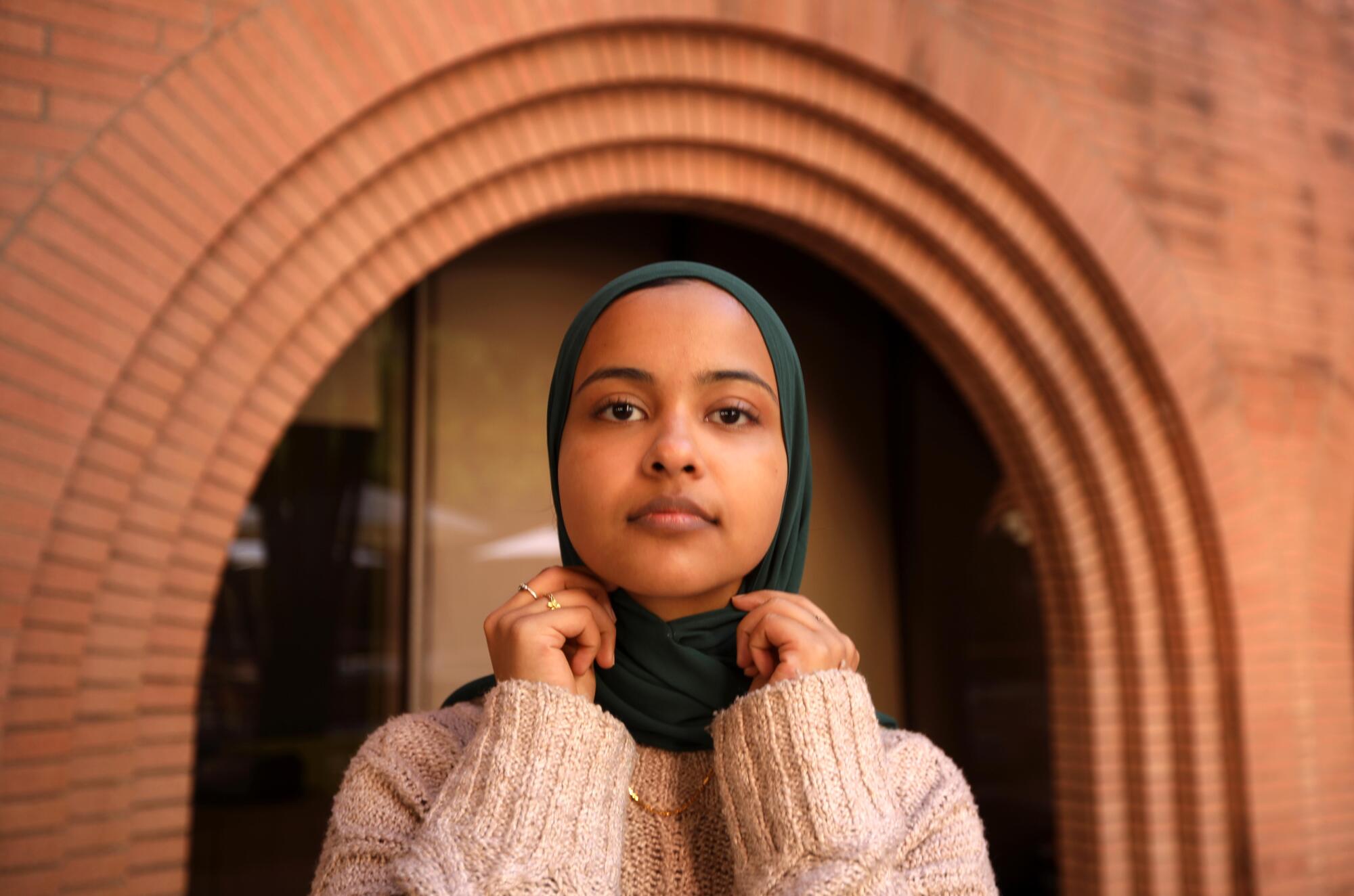
“The university has betrayed me,” she said.
USC administrators contested the idea that Tabassum’s inability to speak is a free speech issue.
“There is no free-speech entitlement to speak at a commencement,” Provost Andrew T. Guzman said in a campuswide letter. “The issue here is how best to maintain campus security and safety, period.”
The 1st Amendment guarantees only that the government refrains from abridging freedom of speech. But experts on campus discourse asserted that as an institution of higher learning, USC has a responsibility to defend freedom of ideas.
USC communications professor Christina Dunbar-Hester, chapter president of the USC American Assn. of University Professors, said in a statement that it was disingenuous to frame Tabassum’s speech as a security issue without specifying a threat.
Guzman, she noted, did not offer any details, saying only that the discussion had “escalated to the point of creating substantial risks relating to security and disruption at commencement.”
And that, Dunbar-Hester said, raises the question of whether USC faced a specific credible threat or was just trying to find a way to get around controversy.
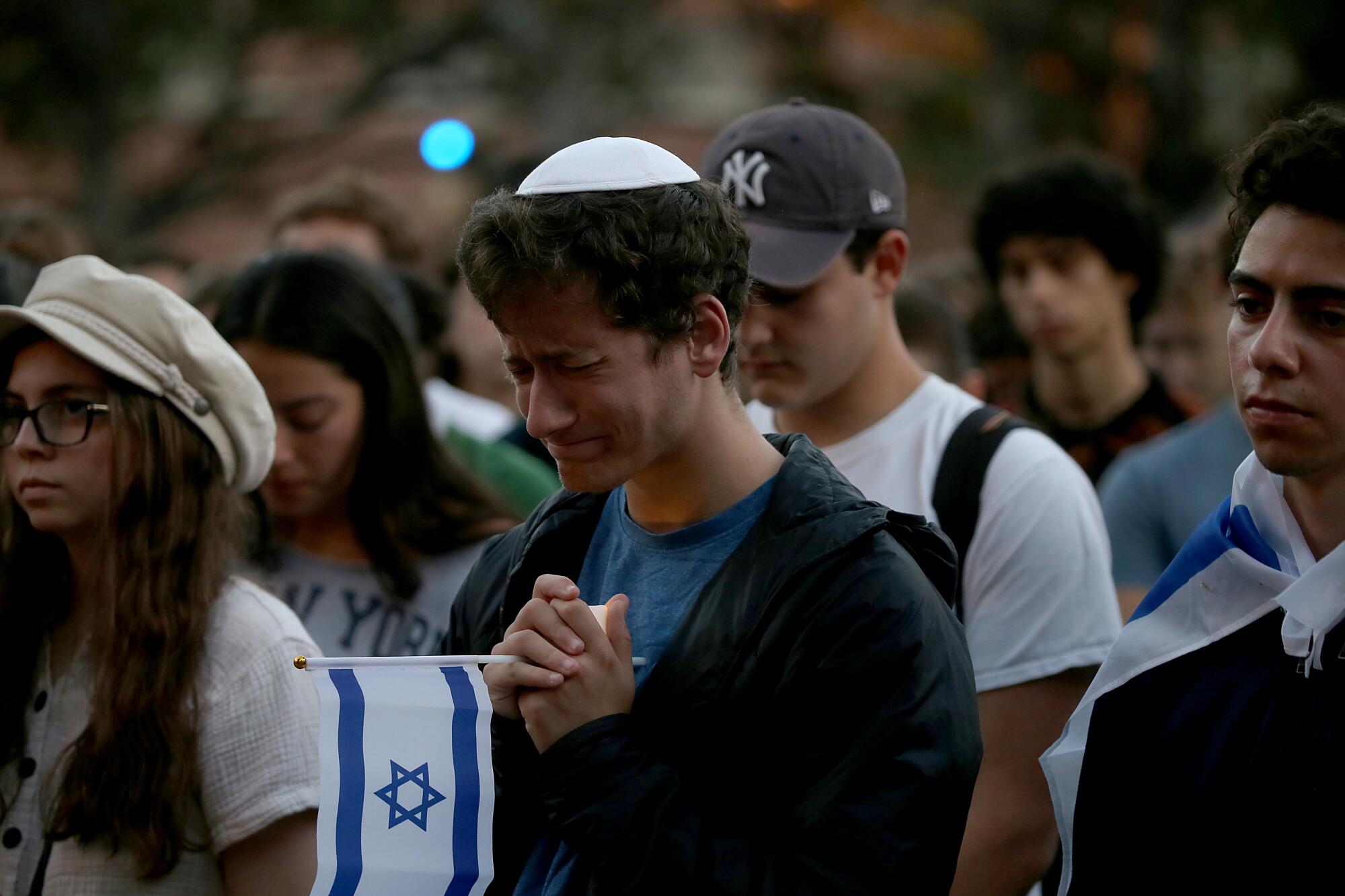
“Here, we have capitulated to a ‘heckler’s veto’ before the fact,” she said. “Why is the burden of a potential threat placed on the shoulders of the valedictorian rather than those who would disrupt her?”
Dunbar-Hester said USC’s action — coming days before conservative legislators in Washington grilled the president of Columbia University — plays into the hands of “anti-intellectual reactionaries” who cynically sought to “demonize campus communities that express solidarity with the Palestinian freedom struggle.”
Howard Rodman, a professor of the writing division at the USC School of Cinematic Art and former president of the USC-AAUP chapter, said administrators decided to cancel Tabassum’s speech without buy-in from the faculty.
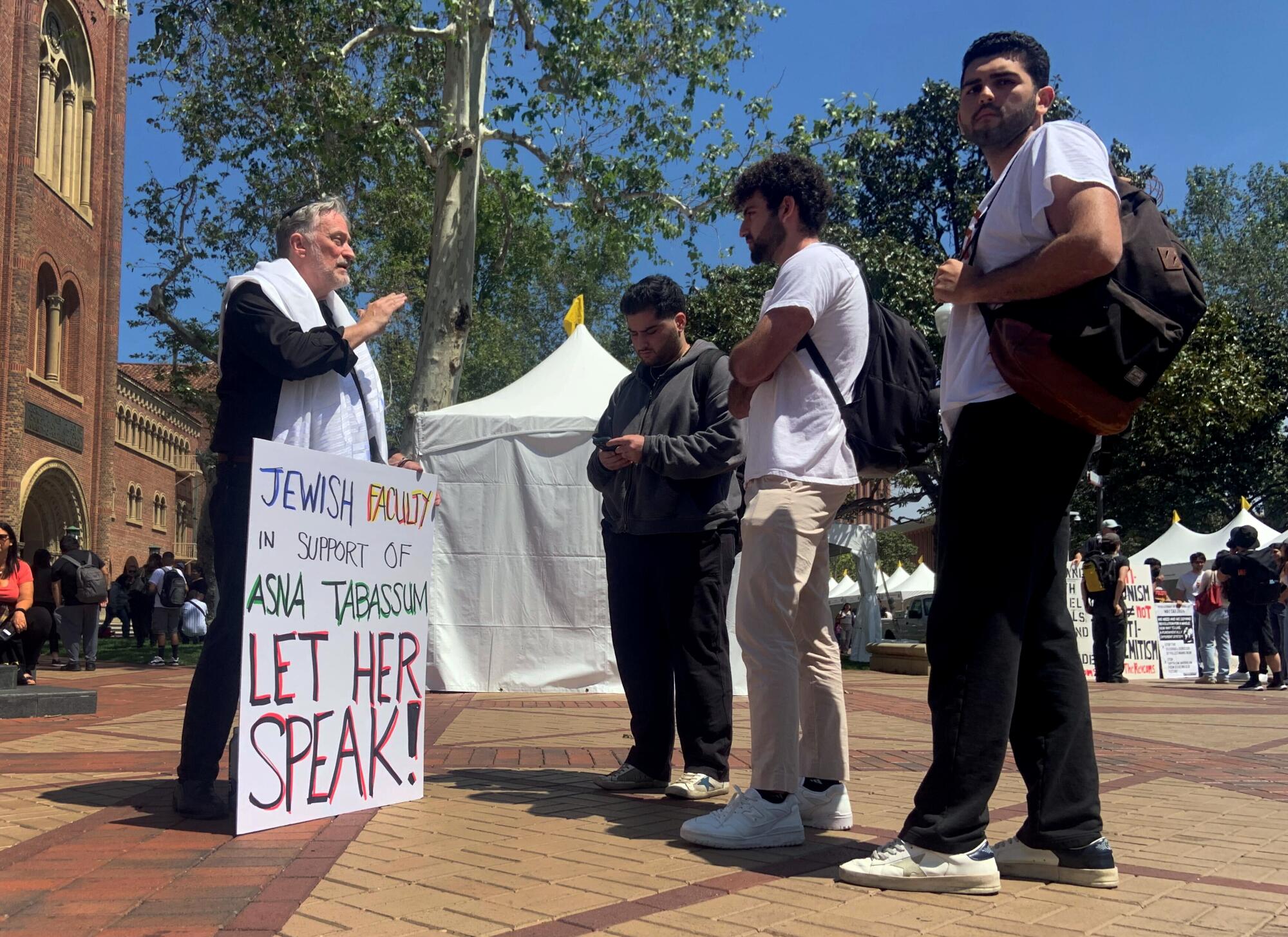
“I have spoken to many people who feel that this is a disastrous decision, and no one who feels that it was a correct decision,” he said.
Among USC faculty, Rodman said, there was no widespread agreement on free speech.
“There are people who say, ‘We’re 1st Amendment absolutists,’ who believe that the remedy for speech you don’t like is more speech,” he said. “There are people who believe that the structural question of who owns the megaphone supersedes that. ... ‘Why should the people who own the apparatus of the transmission of ideas have the sole access to it?”
Rodman blamed officials, donors and legislators for the assault on campus free speech.
“The traditional values of the university are under assault by donors who wish to determine policy,” Rodman said. “They’re under assault by a government that places restrictions on what you can do once you have received government money.”
::
Students have also played a key role in setting up a climate of censorship, experts say.
About a decade ago, Morey said, 1st Amendment attorneys at the Foundation for Individual Rights and Expression began to notice a shift: Students, who had long advocated for their own free speech rights, were increasingly asking administrators to regulate words and ideas.
In 2014, students at Wellesley College started a petition calling for the removal of an outdoor statue of a man in his underwear, claiming that it was a source of “triggering thoughts regarding sexual assault.” The following year, students at Yale University demanded that Nicholas Christakis step down from his position as faculty-in-residence at Silliman College, after a viral moment in which he tried to converse with students who took offense at an email his wife, Erika Christakis, wrote to students questioning administrators’ guidelines on Halloween costumes.
Commencement ceremonies have long been a magnet for protests, with a rich tradition of students and faculty heckling speakers, turning their backs on them or forcing them to withdraw.
For more than a quarter of a century, the Foundation for Individual Rights and Expression has kept a campus deplatforming database that has tracked such disputes, starting with media mogul and Atlanta Braves owner Ted Turner’s withdrawal from a 1998 commencement at Macalester College after students protested the team’s use of an Indian mascot.
By 2016, disinvitations were so common that President Obama, speaking at a Rutgers commencement, chided students for pressuring former Secretary of State Condoleezza Rice to drop out as commencement speaker two years before due to her role in the Iraq war.
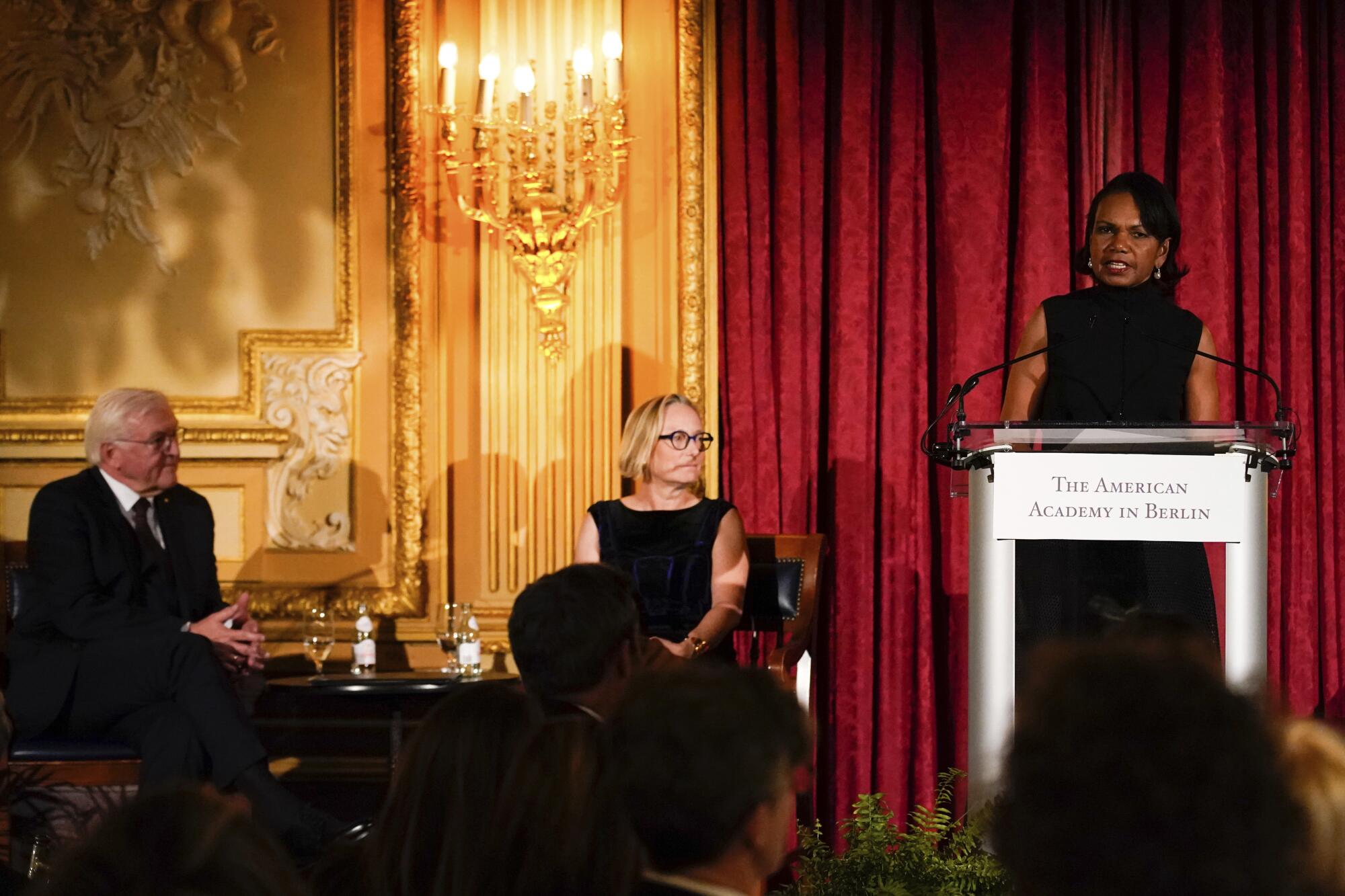
“I don’t think that’s how democracy works best, when we’re not even willing to listen to each other,” Obama said.
The focus on safety intensified during the COVID-19 pandemic as students became involved in Black Lives Matter protests, Morey said.
At USC, administrators made business professor Greg Patton “take a short-term pause” from teaching a communications course in August 2020 after Black students complained that a Chinese-language example he used during class sounded like a racial slur and caused them mental harm.
In a letter to MBA students, a dean wrote that such language was “simply unacceptable” for faculty to use because it could “marginalize and harm you and hurt your feelings of psychological safety.”
In November, administrators told Strauss he could not teach undergraduates that semester after he declared: “Hamas are murderers. That’s all they are. Every one should be killed, and I hope they all are killed.”

Strauss swiftly found himself the subject of dueling petitions: One called for USC to fire him and create a “safe learning environment free from hate speech or discriminatory behavior”; another urged officials to allow him back on campus, arguing that “Jewish people should not have to hide for their safety.”
In early December, USC administrators announced they had lifted all of the restrictions on Strauss.
Over the last few years, commencement disputes over controversial speakers calmed down as universities exercised more caution over who they invited. “They tried to avoid controversy, not by canceling speakers, but by avoiding inviting speakers in the first place,” Morey said.
The focus of controversy may now be turning to students.
Last year, a law student speaking at the City University of New York’s law school commencement caused a national furor when she called for a “revolution” to take on the legal system’s “white supremacy,’’ CUNY’s collaboration with the “fascist NYPD” and Israel’s “project of settler colonialism.”
After the New York Post ran a front-page story about the student, Fatima Mousa Mohammed — headlined “Stark Raving Grad” — CUNY’s Board of Trustees and chancellor announced that 2024’s commencement would not feature student speakers.
Figuring out what is a legitimate security threat on campuses has become increasingly fraught as activists and administrators blur the line between physical and psychological safety.
“Part of what has happened on university campuses for quite some time has been a claim about a kind of emotional and psychological safety,” Princeton’s Whittington said. “That’s primarily a conceptual argument — one that doesn’t seem to require any evidence in order to assert. Universities then can be extremely sweeping in who they might decide to censor or suppress or punish, in reaction to those kinds of complaints.”
Canceling speech while upholding safety in a vague way, without outlining a concrete threat or distinguishing between physical or psychological harm, would only encourage more complaints, Whittington said.
“Universities have an important obligation to explain that these kinds of concerns about emotional psychological safety are just not something that they can be responsive to at all,” Whittington said. “And in the case of genuine threats to physical safety, there ought to be a very high bar before the university is willing to take the step of shutting down a speaker.”
The irony of what happened to Tabassum is it has given her a much bigger platform.
In the last 48 hours, she has conducted a whirl of media interviews, appearing on CNN’s “NewsNight” and in a front-page story in The Times.
“When you silence us,” she said, “you make us louder.”
More to Read
Sign up for Essential California
The most important California stories and recommendations in your inbox every morning.
You may occasionally receive promotional content from the Los Angeles Times.











